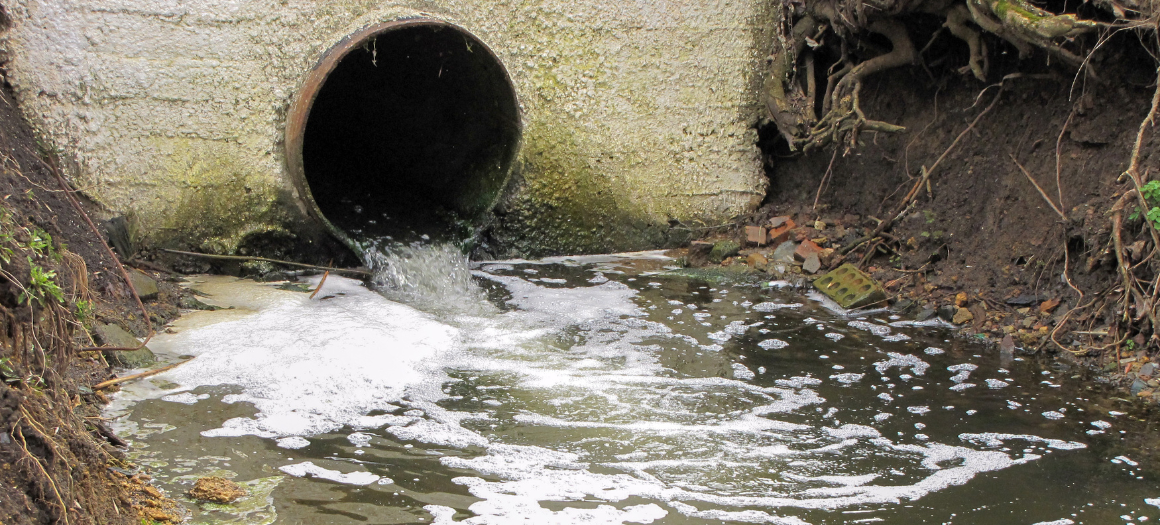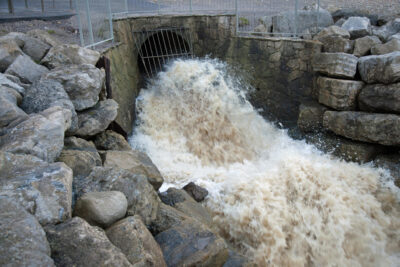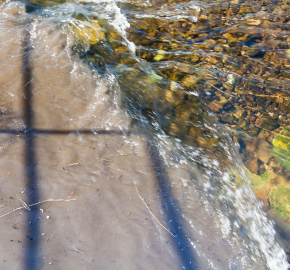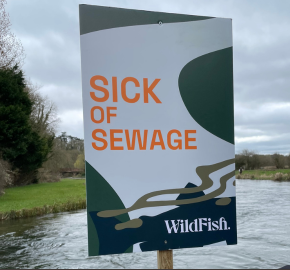WildFish High Court judgement clarifies that Government’s storm sewage plan does not deal with unlawful discharges of untreated sewage into rivers and seas

Environment Agency must urgently review pollution permits to force water companies to meet obligations of 1994 sewage pollution law
Secretary of State and OFWAT must also enforce 1994 law against failing water companies
Water companies, and not customers, must pay for the investment required to stop the illegal sewage discharges.
In a judgement handed down today the High Court refused to quash the Government’s Storm Overflow Discharge Reduction Plan in response to a judicial review challenge case brought by WildFish.
However, the case has achieved WildFish’s underlying purpose, which was to achieve clarification of a 1994 law on sewage treatment (the Urban Waste Water Treatment Regulations 1994) which restricts the circumstances in which untreated sewage can be released into rivers via storm overflows.
That 1994 law requires water companies to use best techniques, not involving excessive cost, to prevent untreated sewage being released, unless there is exceptional weather. Exceptional weather does not include normal or usual rainfall. It certainly does not include dry weather conditions, although we have seen many water company sewage pipes discharging untreated sewage into rivers in dry conditions over recent years.
The case confirmed that sewage treatment infrastructure needed to comply with the 1994 law is excluded from the scope of the Government’s 2022 Storm Overflow Discharge Reduction Plan and those works are to be funded by the water companies and not by customers through their water bills.
The core of the current untreated sewage problem relates to a lack of investment in capacity at sewage works which must be addressed now, under the 1994 law, not loaded on customers’ bills through the Plan.
Wildfish believes that very significant new sewerage infrastructure is now urgently required, to comply with the law, works that should have been built over the last 30 years, but have not been, due to a failure of OFWAT, the Environment Agency and the Secretary of State to interpret the law properly over decades.
In parallel to the judicial review challenge, in 2022, WildFish made a formal complaint to the Office for Environmental Protection (the OEP) which led to the OEP’s announcement of its first-ever investigation into the regulation of combined sewer overflows. Earlier this week, as part of that investigation, the OEP identified possible failures to comply with environmental law by the DEFRA, the Environment Agency and OFWAT, stating that “we believe that there may have been failures to comply with environmental law by all three of the public authorities”.
The OEP’s findings resonate with Mr Justice Holgate’s judgement today.
A proper application of the 1994 law should also significantly reduce the cost to the public of dealing with the appalling sewage problem and enable a solution to be achieved significantly sooner than the Government is currently planning.
It is also now clear that OFWAT has a duty directly to enforce the 1994 law against water companies, which it has failed to do over decades, and that the Environment Agency also has a duty to secure compliance with the 1994 law by tightening the terms of the permits it issues to water companies under the Environmental Permitting Regulations 2016.
The Agency must do that at once, as most permits issued by the Agency do not currently restrict raw sewage overflow discharges to exceptional weather. Where works can be carried out, which would not require excessive costs, the Agency is under a clear legal duty to amend permits, in effect to require those works to be carried out.
Guy Linley-Adams, in-house solicitor for WildFish said:
“This case has achieved a great deal and we are very grateful to the Court. What this judgment, and the OEPs’ announcement earlier this week, have clarified is that much of the storm sewage pollution that is plaguing English and Welsh rivers must be brought to an end under pre-existing statutory and regulatory obligations, and not on the wildly over-generous timetable set down by the Government in its 2022 Plan. And the costs of now properly complying with the 1994 law – putting an end to existing unlawful discharges – must be not paid for by extra increases to consumers’ water bills. Those costs must be paid for by the companies themselves and OFWAT must ensure that occurs. The judgment has also clarified that the Environment Agency must also secure compliance with the 1994 Regulations, which means it needs urgently to review the permits it has given to water companies, to bring them into line with the law”.
Nick Measham, CEO of WildFish added:
“WildFish and its legal team will now be watching extremely closely what the Government, the Environment Agency and OFWAT now collectively say and do to bring the current illegality to a rapid end. This widespread law breaking must be dealt with now – not over the next 25 years -and must be paid for by the water companies, not customers, which is what would likely have happened if the Government’s Storm Overflow Plan had gone unchallenged by WildFish. Of course, what we really need is a politician, of whatever persuasion, with sufficient courage and skill to grab this issue by the horns and actually solve it. So, while this is not technically a ‘win’ in Court, it still represents a huge step forward, which is testament to the dedication and expertise of the whole WildFish team, its external lawyers. Fieldfisher, and Counsel, David Forsdick KC and Charles Bishop of Landmark Chambers”.
WildFish legal and campaigning work on sewage
Over recent years, better monitoring of storm discharges (known as Event Duration Monitoring) has exposed just how much untreated sewage is being discharged to English and Welsh rivers. Increased monitoring alone is, of course, not any sort of success. Such monitoring was proposed as long ago as 1991 by the then National Rivers Authority.
So, while the sewage pollution problem is decades old, both the OEP’s findings and today’s High Court case have followed recent heightened publicity, sparked by Philip Dunne MP’s very welcome and courageous decision to use his Private Members Bill slot in 2019 to push a Sewage (Inland Waters) Bill in Parliament. Sewage (Inland Waters) Bill – Parliamentary Bills – UK Parliament
WildFish (then named Salmon and Trout Conservation) was closely involved in drafting the Bill, which, while unsuccessful itself, led directly to pressure building on MPs to act on this issue, and the ultimate inclusion of clauses in the Environment Bill (now the Environment Act 2021) dealing with sewage. One of the provisions of the 2021 Act was to place a duty on the Government to produce the Storm Overflow Discharge Reduction Plan by 2022.
It was that Plan that WildFish had challenged as we considered that it had deliberately muddied the waters and suggested that currently illegal discharges might be allowed to run until, in some cases, 2050.
In parallel to the judicial review challenge, in 2022, WildFish made history when its formal complaint to the Office for Environmental Protection (the OEP) led to the OEP’s announcement of its first-ever investigation, into the regulation of combined sewer overflows (CSOs) by the EA, OFWAT and DEFRA, and the OEP’s announcement this week that “we believe that there may have been failures to comply with environmental law by all three of the public authorities”. That OEP announcement is entirely consistent with today’s judgment. OEP identifies possible failures to comply with environmental law in relation to regulatory oversight of untreated sewage discharges | Office for Environmental Protection (theoep.org.uk)



